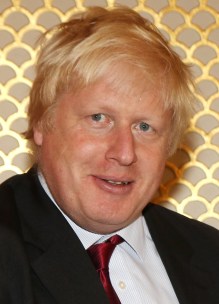Any student of human nature will tell you that it doesn’t really change at a time of crisis. It simply becomes manifest, with everything extraneous falling off and the innate, salient features getting crystallised.

The same applies to states. An extreme situation brings their essence out, but the essence is there to begin with.
That’s why it’s pointless to lament the alacrity with which the liberal democratic state has imposed totalitarian measures at the first sign of trouble – and the docile lemming-style resignation with which the people have accepted such tyranny.
Those who throw up their arms in horror and disbelief have been too credulous in heeding the messages of the modern state, too eager to accept its make-believe as real and its vocabulary as valid. They think the state is betraying the liberal democratic ideals, whereas in fact it’s asserting them.
For, stripping it of its mythological shell, one finds that liberal democracy is in fact neither, if we take its etymological promise on faith. Its principal desideratum is to control the demos, not to liberate it – while creating an illusion that the demos governs itself.
All modern states are shot up with an overdose of the growth hormone; all are united in their craving for power; all are governed by a small, typically homogeneous elite. The differences among the three main types of modern states – liberal democratic, authoritarian and totalitarian – aren’t those of principle.
All three types seek to extend their control over the populace into the private, and increasingly intimate, domain. All three wish to assume a paternal role by creating a culture of dependency. They only differ in the methods the elite uses for its ascendance, and in the constraints imposed on its powerlust.
The totalitarian state relies on naked force plus propaganda, the liberal democratic state on subterfuge plus propaganda, and the authoritarian state on a mixture of them all, but easier on the propaganda.
In that, the authoritarian state is typologically closer to the traditional states of Christendom. The difference between, say, the Spain of Philip IV and Franco was trivial compared to, say, the difference between the contemporaneous France of Louis XIV and de Gaulle.
The totalitarian and liberal democratic state both paint and enforce a mendacious picture of themselves that goes against the grain of history, anthropology, culture, experience and plain common sense.
The liberal democratic state tends to be more successful in that endeavour over time, for the same reason that a wily seducer usually runs up a higher amatory score than a brutal rapist. Yet both types are after similar gratification.
The key thing about crises, be they military, economic or epidemiological, is that they loosen the tethers constraining the innate bossiness of the modern state. It gets a ready excuse to slip off the mask of liberalism and put its foot down. It no longer has to pretend.
In that sense, Jeremy Corbyn is justified in claiming that coronavirus proves him right. Push comes to shove, the state puffs itself up with virtual cash and moves closer to the totalitarian ideals of Corbyn’s role models Lenin and Trotsky.
It’s just that Johnson had to wait for the crisis to let the feral statist cat out of the bag, whereas Corbyn was prepared to do so anyway. If Johnson’s government had to keep the prefix ‘crypto-’ before socialism, Corbyn’s would have honestly dispensed with it.
We in the West are too hung up on discussing politicians at the expense of pondering politics. We choose to gloss over the inner logic of the modern state, wherein politicians matter only as much as actors in a play. Some actors are better than others, but the play remains the same no matter what.
Much as I praise Corbyn’s honesty, a trait he shares with Messrs Lenin, Trotsky and Hitler who never concealed their intentions either, I have to rebuke him for his language.
Right and wrong are meaningless concepts in the absence of absolute standards. Athens and Jerusalem had them, but, while claiming to have a foot in both places, modernity ended up at neither, splashing down somewhere in the Mediterranean.
Modernity itself stayed afloat, but both the sagacity of Athens and the morality of Jerusalem sank to the bottom. Truth got fractured into minuscule fragments, with none retaining the characteristics of the whole.
We simply lack a moral and intellectual system wherein the question of right and wrong can be answered, or indeed even asked. At best, we can only wonder what works better or worse. But even if the modern state knows the answer to that simplified question, it won’t let the truth hold it back.
Modernity echoes Pontius Pilate by asking the rhetorical question to which it knows there is no answer: What is truth? And then it continues to emulate Pilate by virtuously washing its hands, just as ordered.
A pandemic is like a war: a tragedy for the people, a boon for the state. The state will emerge stronger and the people weaker – history offers no exceptions to that rule.
This in no way prevents me from wishing Boris Johnson a quick recovery. I’m sure he’ll get over coronavirus – just as I’m sure we won’t.








